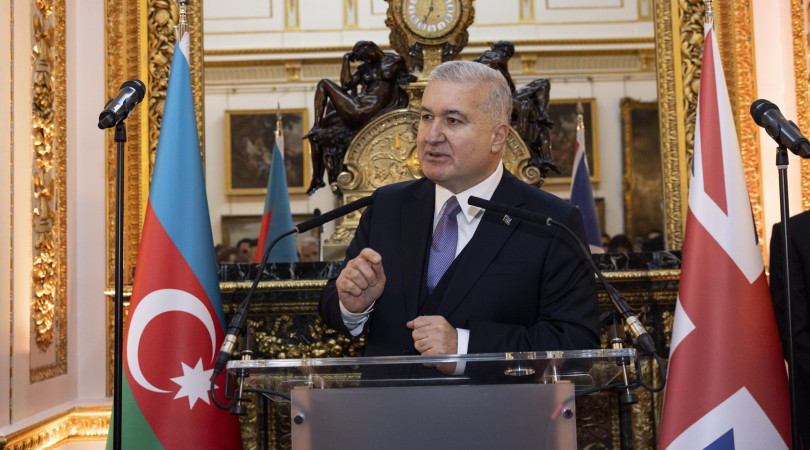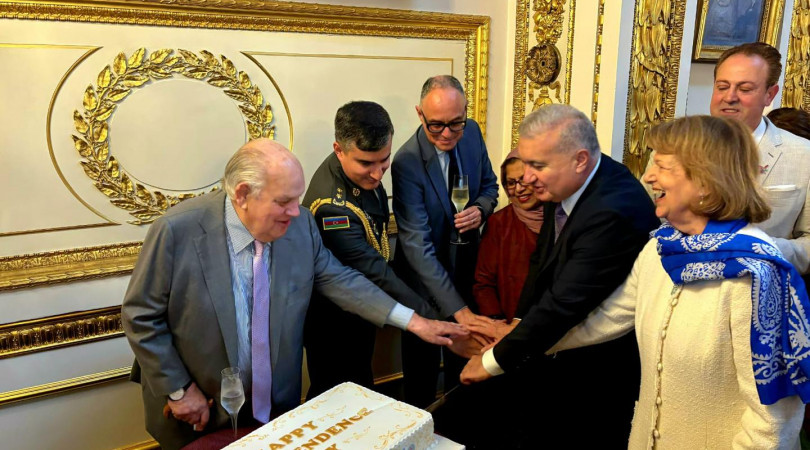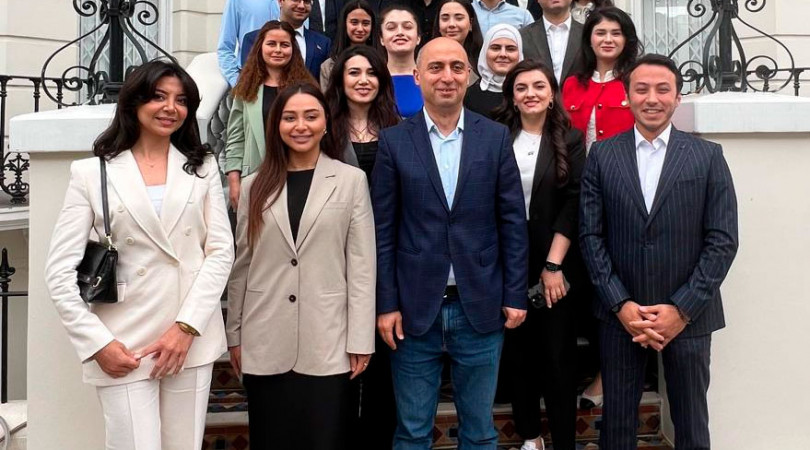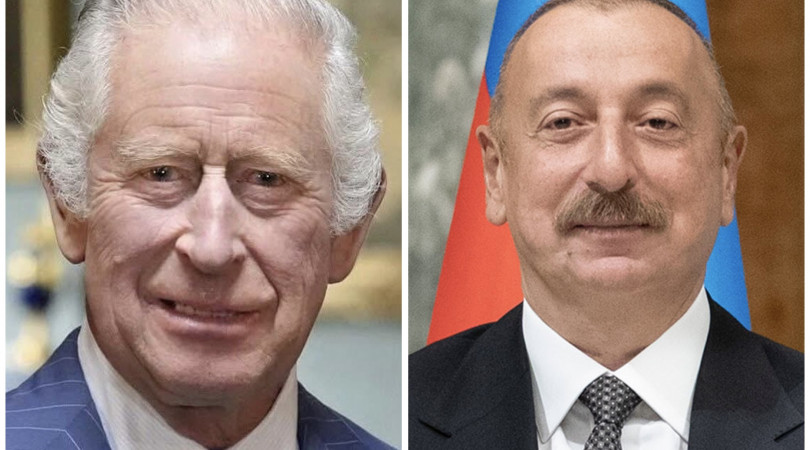Armenia’s aggression will have long-lasting consequences for the South Caucasus
By Javanshir Feyziyev
Co-chair of the EU-Azerbaijan Parliamentary Cooperation Committee
The war that broke out between Armenia and Azerbaijan in the early 1990s ended with the occupation of large parts of Azerbaijan, namely, Nagorno-Karabakh, as well as other adjacent regions, by the armed forces of Armenia.
Despite the UN Security Council Resolutions 822, 853, 874, and 884 adopted unanimously in 1993, which demanded the immediate and unconditional withdrawal of Armenian forces from the occupied territories, Armenia has continued its occupation for the past three decades.
The fragile cease-fire regime that has existed between the two countries since 1994 has been frequently violated by Armenia, with the most recent violation perpetrated by Armenia only two weeks ago.
On July 12, the Armenian armed forces engaged in militarily aggressive acts and provocations in the Tovuz region of Azerbaijan, a move that undermines the negotiations for peaceful resolution of Armenia-Azerbaijan conflict over Nagorno-Karabakh. The recent skirmishes by the Armenian armed forces along the border with Azerbaijan resulted in the deaths of 12 Azeri soldiers, including high-ranking officers, as well as of an innocent civilian. As this article is being drafted, the conflict on our common border continues.
Azerbaijan is acting in self-defence and our military is exercising its full rights, as derived from international law and Article 51 of the UN Charter, in responding to the Armenian offensive and protecting our sovereignty.
This act of aggression clearly reflects on the unwillingness of the current political leadership of Armenia to pursue a peaceful solution to the conflict and showcases their interest in maintaining the existing status quo for as long as possible.
Roots of the recent provocation
The domestic political environment in Armenia today is very challenging, due to social instability which has been aggravated by a series of political crises, mainly between the government of Prime Minister Nikol Pashinyan and his political opposition. On top of that, the existing disappointment and dissatisfaction of Armenian people on the government’s dealing with the COVID-19 pandemic have further exacerbated social tensions. For the Armenian government that desperate act of aggression seemed like the perfect distraction from its domestic struggle and in order to divert the public opinion away from pressing domestic problems.
But domestic unrest is not the only obvious reason. The Armenian provocation is part of a larger plan to try and drag military and political actors, which Armenia is a party to, into its conflict with Azerbaijan.
Armenia makes no effort to hide their intention, one that is actually very dangerous, as the security situation in the South Caucasus is already very fragile and any extra-regional intervention is extremely precarious.
Finally, there is another aspect to Armenia’s aggression, one with serious geopolitical implications for the whole South Caucasus region. Armenia’s aggressive occupation policy throughout the years has resulted in its political and economic isolation, especially being constantly bypassed from strategic energy and transportation projects.
It is not a secret that Azerbaijan has been the driving force behind a number of strategic projects, like the Baku-Tbilisi-Ceyhan oil pipeline, the Baku-Tbilisi-Erzurum gas pipeline, the Southern Gas Corridor (TANAP and TAP pipelines), as well as the Baku-Tbilisi-Kars railway, projects that are further integrating the South Caucasus and the Caspian Basin with Europe.
The government Baku, by having these projects realised, has secured Azerbaijan’s leading role in regional security in the South Caucasus. Europe and the rest of the West treat Azerbaijan as a reliable and stable partner in promoting regional energy security by improving and diversifying energy supply routes to Europe. However, Armenia always looking to destabilise the region, as having been completely side-lined out of these global projects, attempts to impede South Caucasus’ political, economic and security integration with Europe and the wider West.
The last attack by the Armenian armed forces took place precisely on the border with the Azeri region of Tovuz, through which all oil and gas pipelines, as well as transport communications from Azerbaijan to Europe, go through. What was the goal Armenia pursued when choosing this area for attack? Did it want to try and prove to Europe and to our allies in the West that an alternative source of energy supply for Europe is not reliable? If so, they were proven wrong, as first deliveries of Azeri gas to Europe will are planned even before the end of this year.
Protracted turmoil and the OSCE Minsk Group
The Minsk Group of the OSCE, co-chaired by France, Russia and the United States, was established in order to pursue a peaceful solution to the Nagorno-Karabakh conflict, but unfortunately, this format has not yet brought any substantial results in finding a sustainable solution.
It seems there will be no tangible result at all as long as the Minsk Group does not change its approach to the conflict resolution process. It often seems that the Minsk Group acts more in favour of keeping the current status quo of the conflict, which is not acceptable, rather than to play the role of an honest and fair mediator. Instead of calling the “aggressor” and the “victim” of the conflict with their proper names in line with the norms and principles of international law, the OSCE Minsk Group, tries to keep the status quo unchanged in order to “not to jeopardise peace and stability”. The Minsk Group has failed to take a strong and fair position that would put an end to the occupation of 20% territories of Azerbaijan by Armenia for three decades now.
It is not a secret to anyone, including the OSCE Minsk Group itself, that both the people and the government of Azerbaijan are very disappointed with the way the negotiations are conducted under the Minsk Group. Azerbaijan has been actively engaged in these negotiations already for 30 years, and patience is running short. But Armenia still resists fulfilling the UN Security Council Resolutions that mandate the immediate and unconditional withdrawal of Armenian military forces from the occupied territories of Azerbaijan.
Should Azerbaijan sit and wait for another 30 years before Armenia is forced to act pragmatically and end the occupation peacefully? We cannot continue negotiations only in name. Both Armenia and the Minsk Group must realise that Azerbaijan cannot, and will not, continue diplomatic efforts only for the sake of being diplomatic.
Diplomacy is a tool used to bring solutions forward, not to perpetuate conflict and injustice. Azerbaijan is a peaceful nation and has never raised any territorial claims against its neighbours; therefore, it expects from its neighbours and other nations to be treated exactly in the same way – fairly and respectfully to its territorial integrity. We refer to the norms and principles of international law and we look at Europe and our other Western allies in supporting our just cause. After all, this conflict is taking place not far from Europe’s current borders and danger is getting closer than ever.




.jpg)













